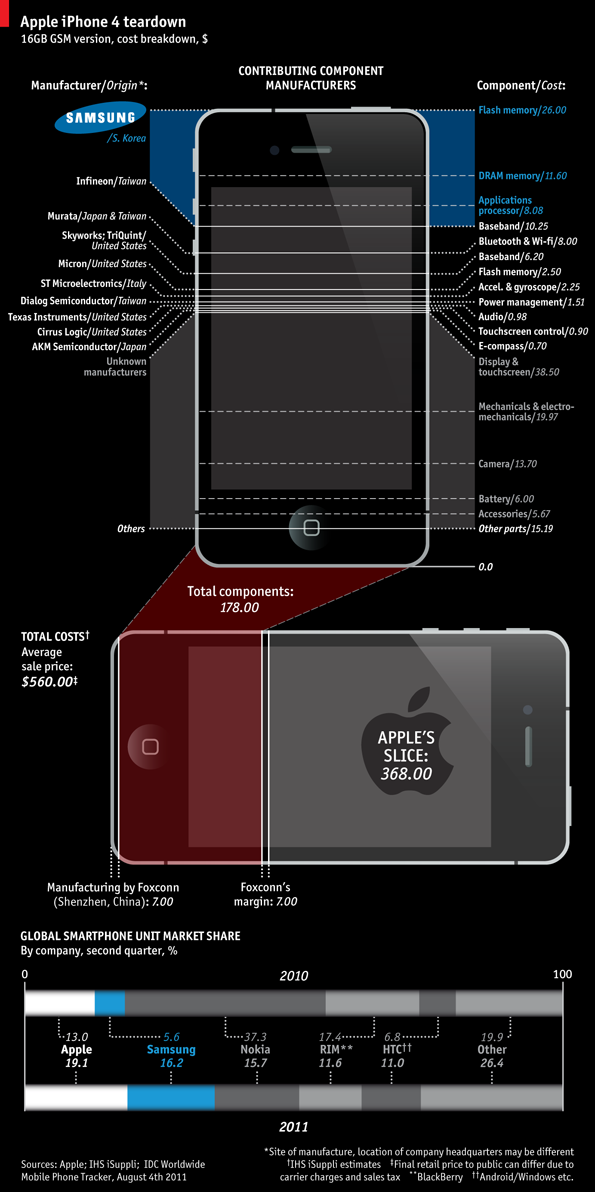Apple and Samsung are currently embroiled in a fierce legal battle over patents pertaining to Apple’s iPhone and iPad devices. The rift between the two companies has grown so severe that Apple recently moved to block the Samsung Galaxy tab from being sold in all European countries, aside from the Netherlands.
With tensions between the two companies continuing to rise, the Economist has taken an in-depth look at their behind-the-scenes relationship, and uncovered exactly how much Apple relies on components created by Samsung to make the iPhone 4. They even went so far as to assemble the data into this helpful infographic:

As you can see in the above image, Samsung supplies a number of key components for the iPhone 4, including the Flash Memory, DRAM memory and the applications processor “that makes the whole thing work,” as the Economist so succinctly puts it. All together, the Samsung parts account for 26 percent of the total cost of building an iPhone 4.
Considering that Samsung controls one fourth of all parts that go into making an iPhone 4, it puts the company in an interesting position, namely, they could stop supplying parts to Apple as a way to hit back in their ongoing legal war. Or, on the flip side, Apple could stop providing Samsung with the massive business of making iPhone parts.
Nobody outside of Apple’s airtight inner circle knows right now where the company plans to get parts for its fifth-generation iPhone, or the iPad 3. As Woody Leonhard in InfoWorld points out, the two companies have likely already cut their ties.
“There are persistent rumors about a new processor (or processors), screens… just about every single component of the new phone — and plenty of rumors about the iPad 3, as well,” writes Leonhard. “The one common thread that I’ve seen in all of the rumors recently: Samsung isn’t even mentioned.”
So, will we see a Samsung-free iPhone 5? Is Apple’s rift with Samsung, and the extra work that creates in having to establish new component suppliers the reason the next iPhone has yet to arrive? We don’t yet have those answers, but they will be interesting to find out.


